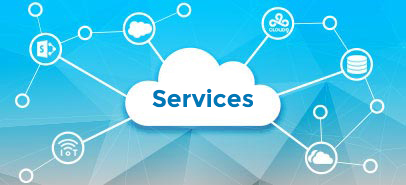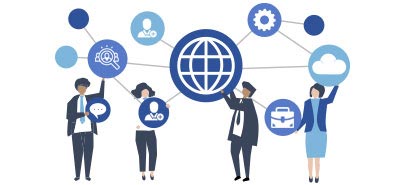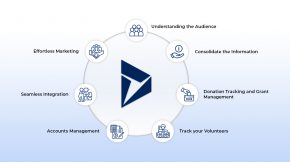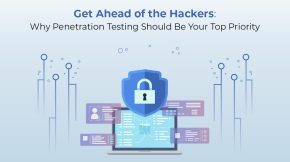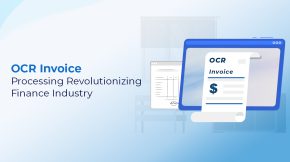What are the top risks when choosing Microsoft Dynamics 365 vs Salesforce?
Salesforce Einstein and Dynamics 365 Copilot are close rivals in AI CRM. Both support sales, service, and marketing. Both write drafts and summaries. Both guide next steps and forecasts. Each connects to a broad app store, AppExchange or AppSource. At first glance, they look alike.
The real split is platform fit. Teams centered on Salesforce get a strong native fit with Einstein in Lightning and Data Cloud. Teams centered on Outlook, Teams, and Power Platform find smooth flow with Copilot using Dataverse. The right pick follows where users work and where the best signals live.
Quick Comparison Table: Microsoft Dynamics 365 vs Salesforce
| Area |
Salesforce Einstein |
Dynamics 365 Copilot |
| What it does |
AI across Sales, Service, Marketing, Commerce. Predictive models, Einstein GPT drafts, next-best-action. Built into Customer 360 and Sales Cloud. |
AI assistant in Dynamics, Outlook, Teams, and Power Platform. Real-time drafts, meeting summaries, Dataverse-driven insights, Copilot for Sales features. |
| Strength |
Deep CRM-native features, wide cloud reach, mature prediction tools and Sales Automation inside Sales Cloud. |
Tight Microsoft 365 fit, low app switching, strong Power Automate and Power Platform automation. |
| Best for |
Salesforce-first stacks using multiple Salesforce clouds and Lightning Experience. |
Microsoft-first orgs using Outlook, Teams and Dataverse, with Dynamics 365 Sales and Dynamics 365 for Sales workflows. |
| Forecasting |
Einstein Discovery and Prediction Builder within the Einstein AI platform. |
Real-time forecasts using Dataverse, Customer Insights and Microsoft 365 signals. |
| Marketplace |
Salesforce AppExchange marketplace for extensions and AI-powered tools. |
Microsoft AppSource offers connectors, Power Platform apps, and third-party applications. |
| Time-to-value |
Fast for orgs already on Salesforce and using Sales Cloud and Marketing Automation. |
Faster for Microsoft-first users, thanks to in-app Copilot and Power Automate flows. |
| High level score |
4.4 (enterprise AI fit) |
4.5 (productivity and integration) |
Microsoft Dynamics 365 vs Salesforce: What This Guide Covers
This guide helps you compare Microsoft Dynamics 365 vs Salesforce. It looks at AI CRM, CRM workflows, and real outcomes. It keeps language simple and sentences short. It includes LSIs like Einstein AI, Microsoft Copilot, Power Platform and AppExchange. It also includes exact keyword phrases you asked for.
Why Microsoft Dynamics 365 vs Salesforce matters
CRM choices shape customer experience. Good tools speed sales. They cut admin. They help reps focus on deals in the sales pipeline. AI-powered tools such as Einstein GPT and Microsoft Copilot for Sales add real value. They aid immensely in Sales Automation, reporting and analytics, and customer support.
Microsoft Dynamics 365 vs Salesforce: How Each Copilot Works
Salesforce Einstein and the choice Microsoft Dynamics 365 vs Salesforce
Well, Einstein AI platform is built into Salesforce CRM. It adds predictions, lead scoring, and suggestions. Einstein GPT writes drafts, summaries, and replies. Einstein Bots can handle simple support tasks. The platform ties to Sales Cloud, Marketing Automation, and CPQ processes. For heavy Salesforce use, the integration is native and deep.
Dynamics 365 Copilot in the Microsoft Dynamics 365 vs Salesforce discussion
Dynamics 365 Copilot sits in Dynamics 365 CRM, Outlook, and Teams. Microsoft Copilot for Sales helps reps inside their daily apps. It uses Dataverse and Customer Insights data for context. It links to Power Platform and Power Automate for workflows. This reduces app switching and speeds adoption in Microsoft 365 shops.
Microsoft Dynamics 365 vs Salesforce: Measured Outcomes And Cases
Real deployments show big wins when teams fix data first. One automation case reported over one trillion transactions processed and about 9 million hours saved. Introhive via VentureBeat covered that case. This shows the scale possible with AI CRM and Sales Automation.
AI forecasting can reach about 79 percent accuracy, versus about 51 percent without AI. Datategy. That helps improve the sales pipeline and revenue lifecycle management.
Microsoft Dynamics 365 vs Salesforce: Forecasting And Sales Forecasting
Forecasts need clean customer data and clear signals. Einstein Discovery runs inside Salesforce and reads the Data Cloud or internal CRM data. Dynamics 365 Sales uses Dataverse and Customer Insights data. If your signals live in Microsoft 365, Copilot can read meeting and email signals to improve forecast updates.
Microsoft Dynamics 365 vs Salesforce: Lead Management And Scoring
AI lead scoring helps reps see high-value leads. Studies show AI lead scoring can lift conversion about 20 percent. Jeeva.ai. Use the scoring that sees your best signals, from Salesforce records or from Microsoft 365 and Dataverse.
Dynamics vs Salesforce: Automation, Generative AI, And AI-powered tools
Einstein GPT and Microsoft Copilot can draft emails, case replies, and notes. They speed CRM workflows and improve response time. AI-powered tools like Einstein Bots and Power Virtual Agents automate routine support tasks. For customer support automation, both vendors provide strong options.
Map a pilot that boosts forecast accuracy and speeds deal velocity
Plan your CRM rollout with AI, automation, and data readiness in mind.
Get StartedSalesforce vs Microsoft: Integration With Microsoft Products
Integration with Microsoft products is a key part of the Dynamics vs Salesforce decision. Microsoft Copilot works well with Outlook, Teams and Power Platform. That helps with in-context prompts and reduces switching. Salesforce integrates with Microsoft apps as well, but Copilot for Sales is native to Microsoft 365 experience for many teams.
Salesforce CRM vs Microsoft Dynamics: Security, Trust, And Governance
Both vendors support enterprise security. Salesforce offers the Einstein Trust Layer and field masking. Microsoft uses Azure Cloud controls, Dataverse governance, and compliance tools. Both have controls for data access, retention, and audit logging. Plan governance before turning on generative features.
Microsoft Dynamics versus Salesforce: Adoption And User Experience
Adoption needs ease and trust. Forrester shows high CRM use but mixed satisfaction when data or change work is poor. Forrester. Good CRM training and short pilots lift satisfaction. User interface and user experience matter. Lightning Experience and Dynamics UIs each have pros for different teams.
Salesforce vs Microsoft CRM: Costs, Licensing, And Hidden Work
Licensing can be complex. Einstein features are often tied to Salesforce tiers. Copilot can add Azure or Microsoft 365 costs, plus Power Platform usage. Hidden work includes integration, third-party integrations, and CRM training. Ask vendors for full TCO that includes Power Automate flows and AppExchange or AppSource apps.
Copilot sales Microsoft: Implementation Roadmap For Quick Wins
- Pick a clear use case, like Sales Automation, lead scoring, or auto-summaries.
- Define success metrics for the sales pipeline, forecast accuracy and time saved.
- Prepare customer data, mask sensitive fields and set permission rules.
- Run a short pilot with champions and CRM training sessions.
- Scale using Power Platform or Salesforce flows, and use AppExchange marketplace or Microsoft AppSource apps as needed.
Beyond Key can map Copilot for Sales outcomes to your data and processes. Book a short Copilot review.
Microsoft Dynamics 365 vs Salesforce: Case Studies And Numbers
- Forecast accuracy, AI models can reach about 79 percent vs 51 percent without AI. Datategy.
- Lead scoring, pilots show roughly 20 percent conversion lift. Jeeva.ai.
- Automation at scale, a CRM case reported over a trillion transactions and about 9 million hours saved. Introhive.
Dynamic 365 vs Salesforce: Where Dynamics 365 Copilot Often Wins
For Microsoft-first firms the Dynamics vs Salesforce debate often ends with Copilot. Microsoft Copilot integrates with Microsoft 365, Teams, Outlook, and Power Platform. Copilot for Sales gives context and draft help inside apps. Using Power Automate makes automation and low-code flows fast. Microsoft AppSource provides connectors and third-party applications to extend capabilities.
Salesforce vs Dynamics 365: Where Einstein Shines
Einstein AI and Salesforce shine when CRM is the hub. Salesforce AppExchange has many extensions for Sales Cloud, Marketing Automation and CPQ processes. Einstein Bots and Customer Insights Data can power customer service and cross-channel personalization. If your stack centers on Salesforce, Einstein is a clear fit.
Microsoft copilot integration with Salesforce: Hybrid And Integration Options
Some firms want both platforms. Hybrid deployments are possible. You can set up Microsoft copilot integration with Salesforce using connectors, middleware, and AppExchange or AppSource tools. This adds complexity, but it can let you use Microsoft Copilot while keeping Salesforce as the CRM of record. Plan time for integration, testing, and CRM training.
AI Dynamics Salesforce: Decision Checklist
- Where do reps spend time, Outlook/Teams or Salesforce UI?
- Which holds the best signals for lead scoring, CRM solutions or Microsoft 365?
- Do you need Power Platform and Power Automate automation now?
- Can you fix customer data in 60 to 90 days?
- Do you want an in-app Copilot or CRM-native Einstein AI platform?
Need help mapping a pilot for Microsoft Dynamics 365 vs Salesforce?
Discover what Dynamics 365 consulting services can do for you?
Read MoreFinal Takeaway on Microsoft Dynamics 365 vs Salesforce
Both Salesforce Einstein and Dynamics 365 Copilot are strong. The decision depends on where your people and data live. For Microsoft-first teams, Dynamics 365 Copilot and Microsoft Copilot for Sales deliver fast wins inside Outlook, Teams and Power Platform. For Salesforce-first teams, Salesforce Einstein and the Einstein AI platform fit naturally within Sales Cloud and the Salesforce Lightning Experience. Use AppExchange or AppSource and Power Platform to extend either choice.
Map your Copilot plan for Microsoft Dynamics 365 vs Salesforce.
Beyond Key helps with Copilot configuration, data governance, and rollout. They map quick wins and build adoption plans that include CRM training, Power Automate flows, AppExchange marketplace apps, AppSource connectors, and Microsoft copilot integration with Salesforce where needed.
Copilot Configuration Copilot Consulting & Integration
FAQs
Which wins: Microsoft Dynamics 365 vs Salesforce for forecast accuracy?
Both help when data is clean. AI forecasting studies show models can reach about 79 percent accuracy, versus 51 percent without AI. Datategy. The winner is the platform that sees your best signals, either in Salesforce Data Cloud or in Dataverse and Customer Insights.
Which is faster: Dynamics vs Salesforce for seller time saved?
Both reduce admin work. Large Dynamics projects reported huge hours saved at scale. Introhive’s case. If reps work in Outlook and Teams, copilot sales Microsoft may cut time sooner, because the assistant appears in the apps they use every day.
How much lift from AI lead scoring in Salesforce vs Microsoft?
Early pilots show about a 20 percent conversion lift. Jeeva.ai. Real lift needs clean customer data, tuned models, and CRM training so reps trust scores.
Can I use Microsoft copilot integration with Salesforce?
Yes, you can. Hybrid setups need middleware, custom connectors, and extra testing. You can use AppExchange and AppSource apps to reduce build time. Plan for CRM training across both systems so users know where to look for the right signals.
Are generative replies safe in ai Dynamics Salesforce environments?
Generative replies can be safe with rules. Both vendors offer data masking, logging and content filters. Use human review for critical messages. Provide CRM training so agents know when to edit AI drafts. Keep an audit trail for compliance.
What are the top risks when choosing Microsoft Dynamics 365 versus Salesforce?
Top risks include poor data quality, missing governance, and weak change management. Fix data first. Lock down permissions. Run short pilots and train users. Use reporting and analytics to track outcomes and to detect model drift.
How fast will I see ROI in the Microsoft Dynamics 365 vs Salesforce choice?
Pilots often show measurable gains in 2 to 6 months for scoped use cases. Bigger programs need more time. Measure time saved, forecast accuracy, and conversion lift to build a clear business case. Use CRM workflows and Power Automate to speed value delivery.


